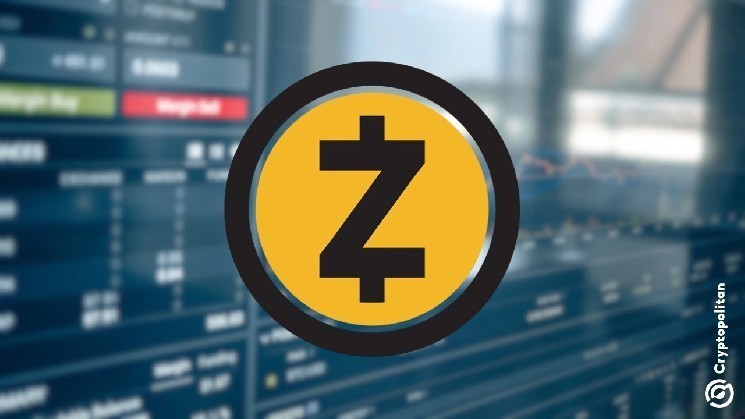ZCash (ZEC) was added to another round of ‘Vote to delist’ on Binance. The potential delisting raised concerns about Binance’s attitude about confidential coins.
ZCash (ZEC) was added to the latest ‘Vote to delist’, raising the concerns of the crypto privacy community. ZEC has seen other delistings, but the past few months led to its removal from Binance as well. ZEC has been included in previous rounds for delisting, at one point drawing in fake votes. So far, the coin survives and is still present on Binance.
The project’s founder, @zooko, protested against the potential delisting. Currently, Binance has delisted most privacy coins, or requires users to de-anonymize their deposits for trading.
Binance, you’re considering delisting Zcash!?
What kind of world are you creating? Do you want your children to grow up in peace and prosperity, or a Black Mirror episode?@_RichardTeng, Privacy is normal! Support privacy by supporting Zcash, like Coinbase, Gemini, and Kraken!
— zooko🛡🦓🦓🦓 ⓩ (@zooko) April 14, 2025
The vote on ZEC will run until April 16, with other almost inactive tokens included for potential delisting. Binance has picked coins and tokens from older narratives, which are mostly inactive, or highly risky. This round of delistings may include JASMY and the now-defunct FTT token from the FTX exchange. The ZCash community also wondered why Binance put the coin in the same cohort as extremely volatile tokens, or projects with no additional utility or development.
Binance’s trading pair makes up around 14.2% of all ZEC volumes of around $83M. The coin also gained a Coinbase listing, and has retained some activity based on its legacy status. ZEC has been through multiple bull and bear cycles, and retains one of the most dedicated crypto communities. However, the token is seen as risky, as Binance put a monitoring tag on the asset since January 2024.
ZEC currently trades at $31.20, mostly pressured by a loss of interest and regulations against privacy coins. ZEC is just outside the top 100 of coins and tokens in terms of market capitalization.
ZEC launched in 2017 with a price above $3,000, and aimed to become a competitor to Monero (XMR) and similar assets. Additionally, ZEC marketed itself as the privacy coin for business due to its drive to achieve four-digit prices.
Subsequent bear markets, delistings, and loss of demand led ZEC to become a low-priced altcoin.
Despite this, the ZCash community refuses to admit that ZEC is a dead coin or a scam. The ZCash developers also aim to develop additional privacy tools, independent of the coin’s performance.
The Zcash project is ranked at position #48 based on CryptoMiso data, with regular updates of the protocol. ZCash considers the project as a privacy lab, though ZEC is suffering from the wider spread of KYC requirements and demands to link wallets with online identities.
Binance offers BSC version, holds ZCash chain coins in cold storage
One of the contentious issues of ZEC on Binance is the offering of a tokenized version of the privacy coin. ZEC runs on its own network, which currently carries around 2.5K daily transactions. The chain carries around 2.25K daily active addresses.
Binance’s ZEC cold wallet also contained relatively small reserves of $22.3M in ZEC, or around 715.8M coins. Most of the coins were inactive, and some users were urged to avoid ZEC deposits. Currently, withdrawals are possible only in the BNB version, which the community does not consider ‘real’ ZEC. This version is only of limited use for Binance transfers and trading, if the asset is not delisted.
The Binance cold wallet was last active when it sent out a series of outgoing transactions. The withdrawals coincided with the news of an eventual delisting.
The Binance cold wallet was inactive since February 14, but in the past day, a series of transactions moved out $22M ZEC.
ZEC holders withdrew around 22M in value, essentially cutting Binance’s balance in half. There is no way to track the recipients due to privacy limitations on the ZCash chain. The Binance cold wallet has not seen any additional deposits, and the exchange is not currently used to cashing out. ZEC ownership, despite the low price, remains a tool for sending private, practically untraceable transactions.
Read the full article here
